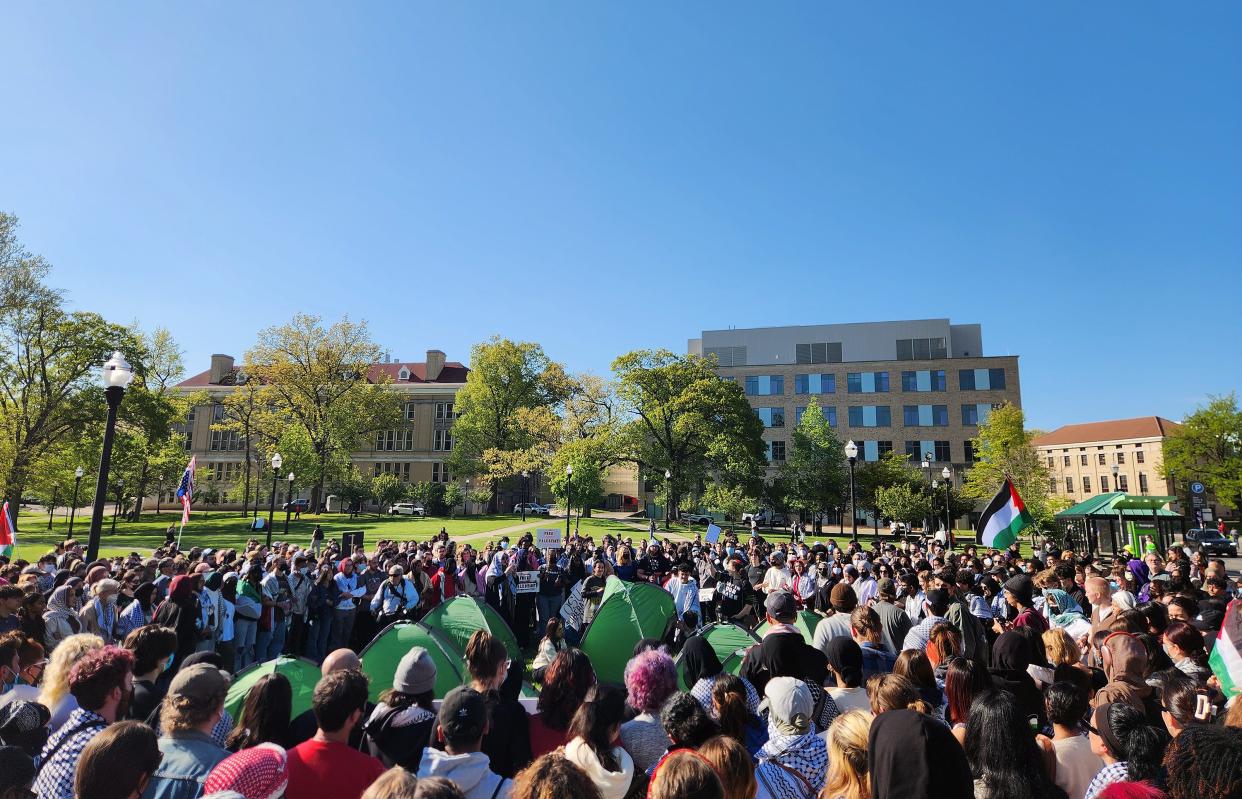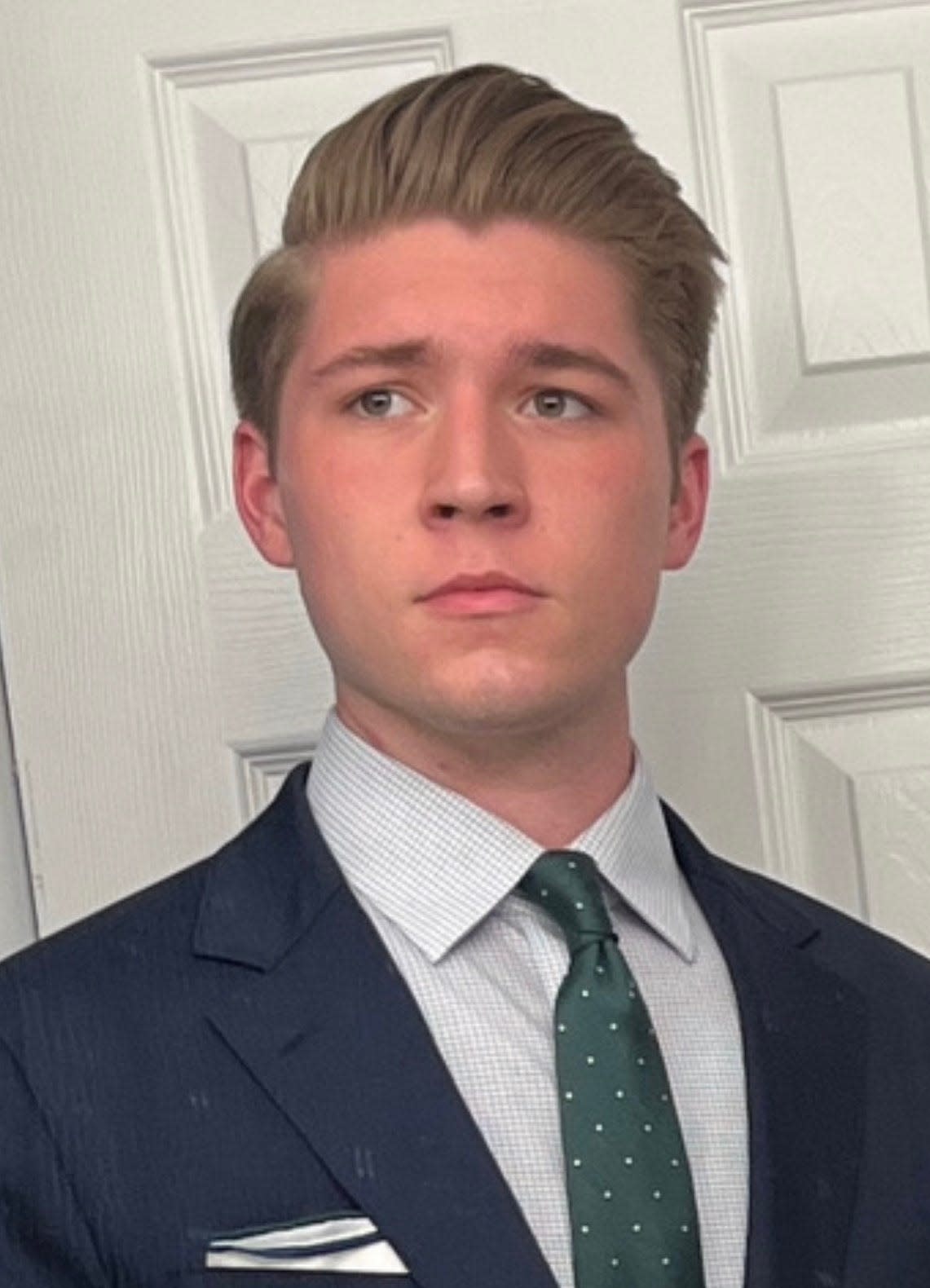Ohio State protest wasn't peaceful. Activist, supporters should stop clutching their pearls
David Jordan is a fourth-year senior at The Ohio State University. Since the short-lived pro-Palestine student encampment was dispersed by law enforcement at Ohio State University, a number of students and professors have taken to social media and even to the pages of this newspaper to object to the response of university administration.
I am compelled to speak out against the common mischaracterization of those events, and speak for the silent majority of students who understand and support the university and law enforcement response.
In his recent Dispatch column, Ohio State’s own professor Judson Jeffries writes in part that “As a supposed world-class university, we want our students… to become thinkers. We want them to have a voice on matters of significance, especially those that have life and death consequences.”
Activism comes with consequences

Jeffries is certainly correct that we ought to be capable of thinking critically about issues of global importance, and as a corollary, that there is something virtuous about being willing to put oneself on the line for a worthy cause.
This is the logic of civil disobedience — the logic of the Montgomery Bus Boycott, lunchroom sit-ins during the civil rights movement, and other noble acts of civil disobedience in our nation’s history.
Judson L. Jeffries Ohio State University's leaders have a lesson to learn. Where would we be without protests?
In each case, activists were under no illusion that their activism would have consequences. Though they objected to the injustice of the law they were violating, they accepted the consequences of that violation as part and parcel with their conduct.
What we have seen on our campus over the last few days is something quite different.
Activists are clutching their pearls
Far from accepting the consequences of their actions, the encampment organizers, Students for Justice in Palestine at OSU, have accused the police response of being an “assault.”
Protestors compared Columbus Police to the Klu Klux Klan in a recent Instagram post, and current and former faculty have taken to the pages of this paper to run cover for the protestors.
In his open letter to Ohio State President Walter "Ted" Carter published int he Dispatch, professor emeritus Keith Kilty calls the arrests “despicable and autocratic." Jeffries suggests that handcuffing students and bussing them away was not warranted.
Never mind that the protesters were given several hours to disperse. Never mind that the demonstrators formed a wall to keep police away from their tents–resisting any solution that would have avoided the use of force.
Never mind that setting up encampments on university property is impermissible under generally-applicable time, place, and manner restrictions, well within the boundaries of the First Amendment.
Kilty’s letter asks Carter whether he has read the First Amendment. I would ask Professor Kilty if he has read any of the applicable Supreme Court precedent on the issue.
This was not a peaceful protest
The pearl-clutching narrative that the April 25 demonstration was a peaceful protest that was spuriously disrupted by law enforcement belies the truth of the matter—that it was orchestrated specifically to provoke law enforcement response.
Naturally, a public university must defend the First Amendment rights to speech and assembly.
And I certainly do not wish to contend in this column that pro-Palestine protests are ideologically illegitimate in and of themselves.
However, the facts matter.
Protestors set up an encampment knowing what the result would be, and even when given multiple opportunities to disperse, chose not to comply.

The outrage from some members of our community over an extremely predictable and by-the-book police action is unwarranted and misplaced.
Keith Kilty: Ted Carter, you turned campus into military zone. Your goons crushed protester's rights.
Regardless of one’s views of the nobility of the protesters' cause, if we wish to respect the agency of my classmates who are committed to civil disobedience, we must necessarily accept that they bear responsibility for the consequences of such action, rather than feign surprise that there would be consequences at all.
David Jordan is a fourth-year senior at The Ohio State University. He is graduating summa cum laude this spring with a Bachelor of Arts in public management, leadership, and policy and philosophy, politics, and economics.
This article originally appeared on The Columbus Dispatch: Ohio State protest was about disruption. The fake "outrage' must stop.
